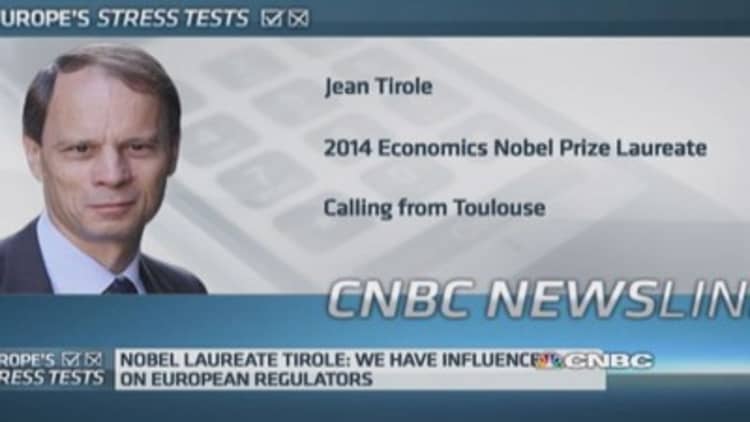
The euro zone's controversial post-credit crisis plans for closer banking union have been given some prominent and influential backing from this year's Nobel economics prize winner.
Jean Tirole, the French economics professor who received the Nobel Prize for Economic Sciences last week, gave a ringing endorsement to the plans to make the European Central Bank the overall regulator for the currency region, from next month.
"I'm a big fan of banking union. We should separate supervision from the home country to some extent for several reasons. Often the national supervisors – there's politics involved," he told CNBC.
Europe's banks have been at the center of the euro zone's economic crisis. Banks had to be rescued by their governments after investment decisions and loans turned toxic in the 2007. To afford the rescue, governments issued debt, which was then bought up by the country's banks, causing a toxic co-dependency.
"We have been afraid about the 'doom loop' – that lately banks own government bonds from their own countries ," Tirole explained. "Which means that if there are doubts about the solvency about the country then there are also doubts about the banks, and therefore banks in trouble will require bailout from their own country, so it's a vicious circle."
Pooling talent from around the euro zone in one regulator would also help govern the region, said Tirole, who is best known for his work making game theory relevant to large companies, argued.
Critics of the banking union argue that it does not grant enough power to individual nations over their fiscal affairs. Germany, the region's largest economy, has resisted pressure to agree to bailout bank failures, or protect bank deposits, in other countries.
- By CNBC's Catherine Boyle



